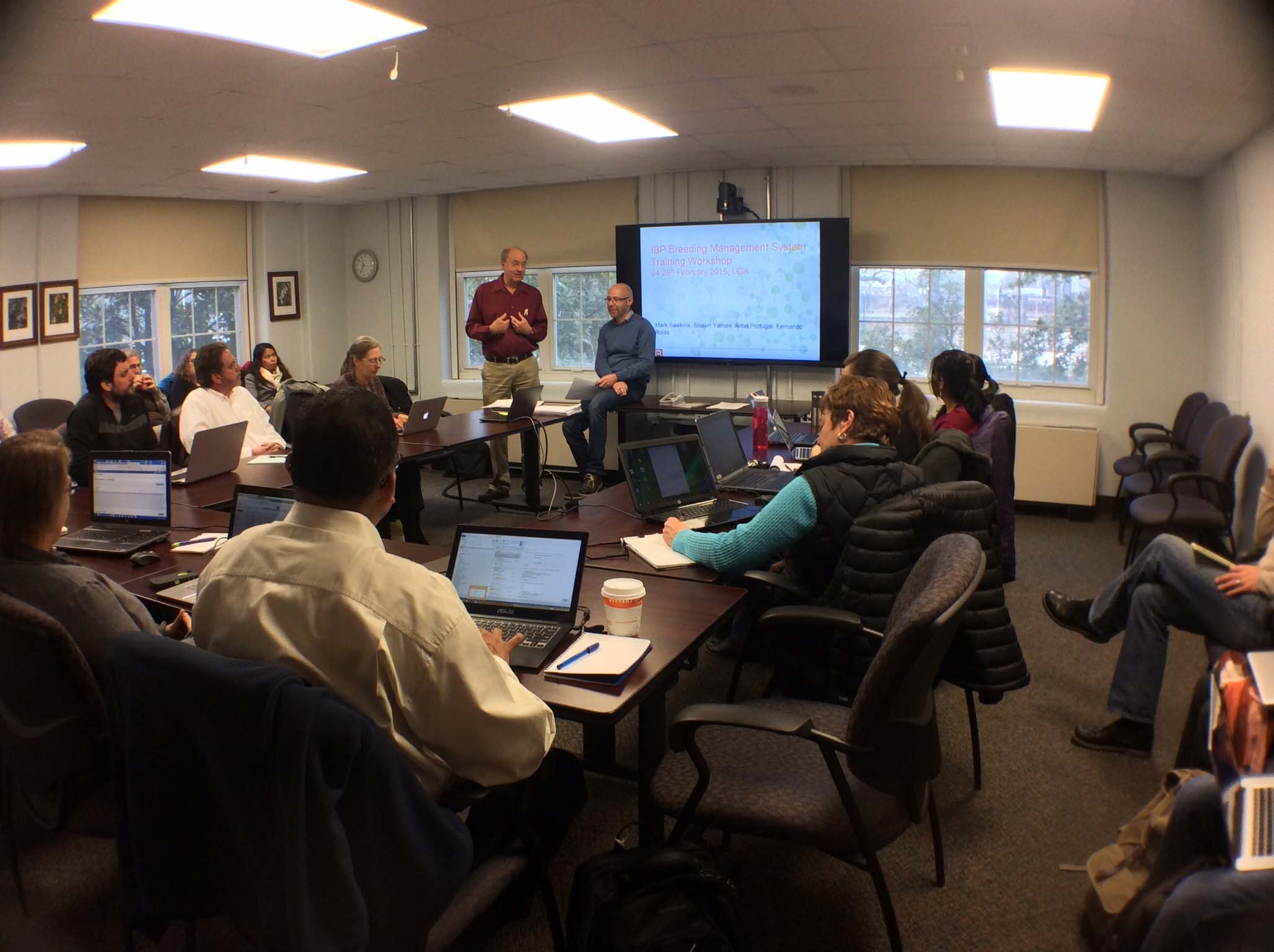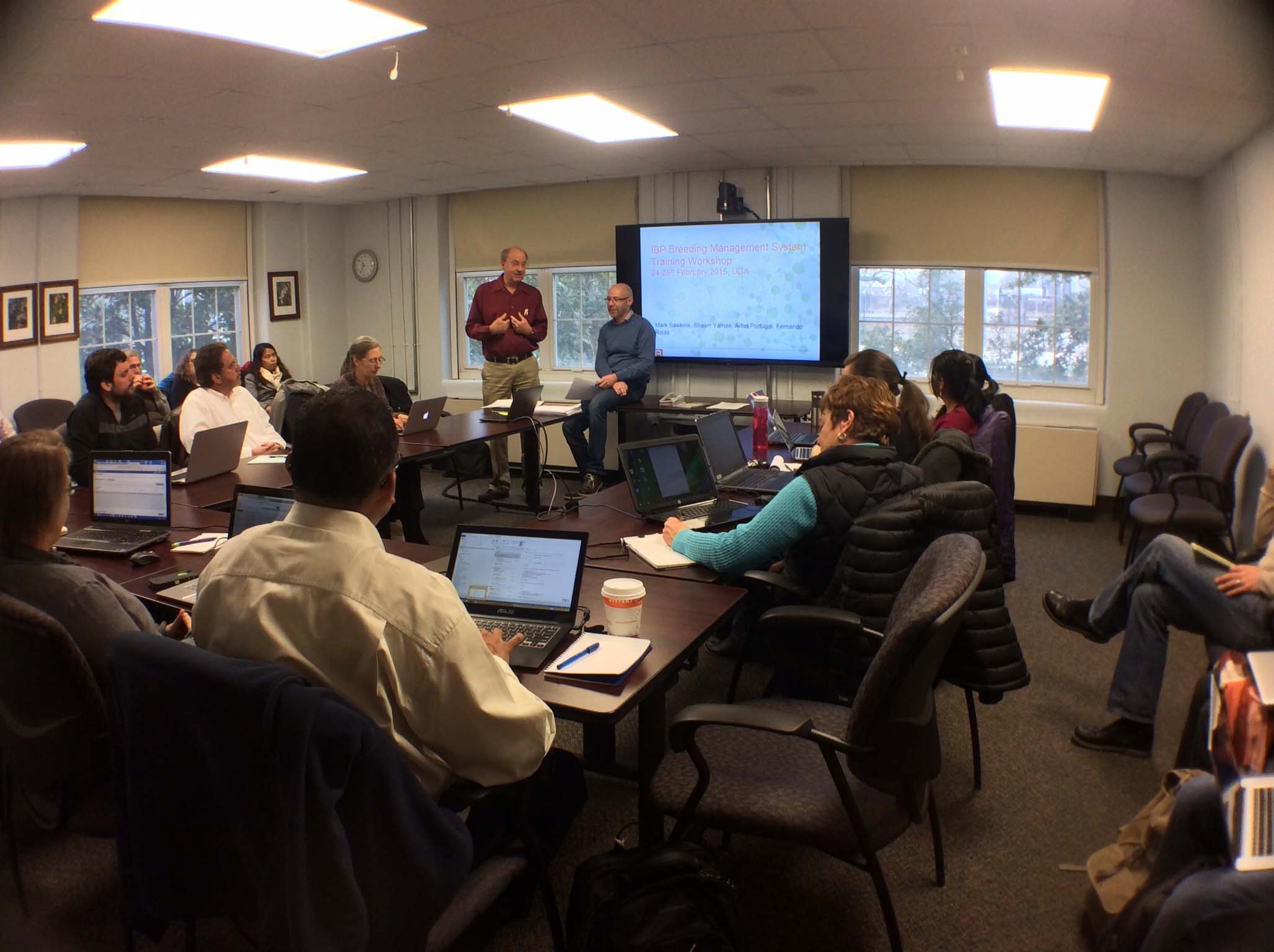When breeding a new crop variety, plant breeders often have to collect data from dozens or hundreds of seedlings to determine which plants have the traits they are looking for.
Crunching all that data can be complicated, but new bioinfomatics systems, which track traits and make projections on future plant peformance can make the process quicker, less expensive and more productive.
Late last month the the Feed the Future Peanut and Mycotoxin Innovation Lab (PMIL) at the University of Georgia College of Agricultural and Environmental Sciences hosted a workshop on one of these systems with the developers of the Breeding Management System. Fifteen breeders working with a variety of crops including peanut, millet, soybean, cacao and watermelon attended the workshop.
The Breeding Management System (BMS) is a software suite designed by scientistis to increase the efficiency of plant breeding by reducing the time and cost needed to develop improved cultivars. It combines data management, analysis and decision-support tools that accommodate common breeding schemes, from conventional breeding through increasing levels of marker use.
Breeding management programs are the next step in advancing genomics research in the next decade according to Peggy Ozias-Akins, who helped to organize and attended the BMS training.
Ozias-Akins, a lead scientist for the PMIL Plant Genomics project, works on the International Peanut Genome Initiative and is director of the UGA Institute of Plant Breeding, Genetics and Genomics.
“Breeding advances will have a large impact on crop production over the next few decades and will be essential to feed a growing population with limited impact on the environment,” said Ozias-Akins.
The BMS software is the centerpiece of the Integrated Breeding Platform, which provides other products for researchers such as diagnostic markers, germplasm and trait dictionaries, genotyping services, educational resources and various online communities for plant breeder discussions.
“The (platform) provides a one-stop-shop for many of the analytic and data management tools required for breeding,” said Dave Hoisington, Director of PMIL and Chair of the Board of Trustees for the Integrated Breeding Platform.
The software was developed through the Global Conference on Agricultural Research for Development, a global consortium of 15 agricultural research centers, thousands of scientists, and hundreds of partners, carries out research programs in 96 countries in pursuit of the scientific, policy and technological advances needed to overcome such complex challenges as climate change, water scarcity, land degradationand chronic malnutrition.
The software and its annsilaries were first developed through an initiative of the CGIAR Generation Challenge Programme. The concept for the Integrated Breeding Platform is to support the optimisation of plant breeding programmes by disseminating knowledge and providing broad access to breeding technology and best practices, particularly for breeders working in developing countries.
“The management of information is a critical component for an efficient and successful breeding program. This is especially true with the massive amount of genomic data that is being utilized by many breeding programs,” said Hoisington.
Tuesday began with an open presentation and overview of the platform, followed by a demonstration conducted by Integrated Breeding Platform trainers Shawn Yarnes and Mark Sawkins.
On Wednesday and Thursday, the focus shifted to hands-on individual instructions for selected breeders, who received information on how to load their data into the system and use it in their own particular breeding programs.
The training will allow the breeders to fully incorporate the software into their current programs this year.
PMIL scientists plan to provide more training opportunities to even more plant researchers in the coming years.
“Ultimately, PMIL and the (Integrated Breeding Platform) are interested in providing similar training to our partners in developing countries,” said Hoisington.




